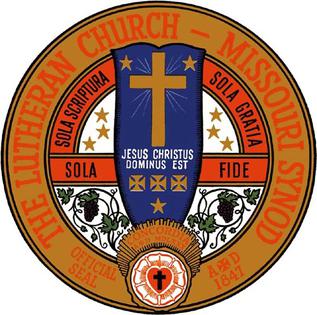
One of the more misunderstood aspects of life as pastors and laymen in the Lutheran Church — Missouri Synod is the relationship of the synod to its members (i.e., congregations and pastors). The LCMS Constitution reads, in part:
Article VII Relation of the Synod to Its Members
1. In its relation to its members the Synod is not an ecclesiastical government exercising legislative or coercive powers, and with respect to the individual congregation’s right of self-government it is but an advisory body. Accordingly, no resolution of the Synod imposing anything upon the individual congregation is of binding force if it is not in accordance with the Word of God or if it appears to be inexpedient as far as the condition of a congregation is concerned.
2. Membership of a congregation in the Synod gives the Synod no equity in the property of the congregation. (emphasis added)
What this means practically, is that the synod will not be a repository of opinions and mandates to be used at the voters’ assembly. You’re not going to be able to call 1-888-THE-LCMS (the actual number of the Church Information Center) and get a ruling on whether it’s blue or violet for Advent. The voice at the other end is trained to say “The LCMS does not have a position on this matter.” So much the better, because the voice at the other end of the line is not a recognized authority within your congregation. God is not going to hold the voice at 1-888-THE-LCMS responsible for the ministry in your congregation the way He will hold your pastor responsible for it. However, simply because the voice says that does not mean that there isn’t a right or wrong conclusion about a teaching or practice. To put it bluntly, you cannot advocate for a bad practice in the voters’ assembly and then defend your proposal by saying that some synodical hotline or website said that the LCMS has no position about the matter. The LCMS isn’t supposed to have an opinion about anything and everything — and that’s by design.
Of course, it also means that the synod and its agents, such as the synodical convention, districts, district presidents, synodical presidents, the CTCR, official publications, or seminary faculty do not and cannot possess any authority to permit that which is forbidden by the Scriptures and the Confessions. One cannot defend having women read the lessons or having a vicar administer the Lord’s Supper by saying that the district president said it was okay. It isn’t.
If you’re looking for an authority on theological matters, you have the Scriptures and the Confessions. A synodical publication may have made a claim about certain congregational practices, but its opinion is binding on congregations only insofar as it is in accord with the Scriptures and Confessions. For example, the synod can say that pastors must remit the sins of the penitent, but only because Jesus commands this very thing Himself.
The Bereans were commended because they daily searched the Scriptures. Certainly, we Lutherans can follow their example when we’re deliberating theological matters in our own congregations. And think about it for a moment: Do you really want the synod of 2018 to wield such power anyway?